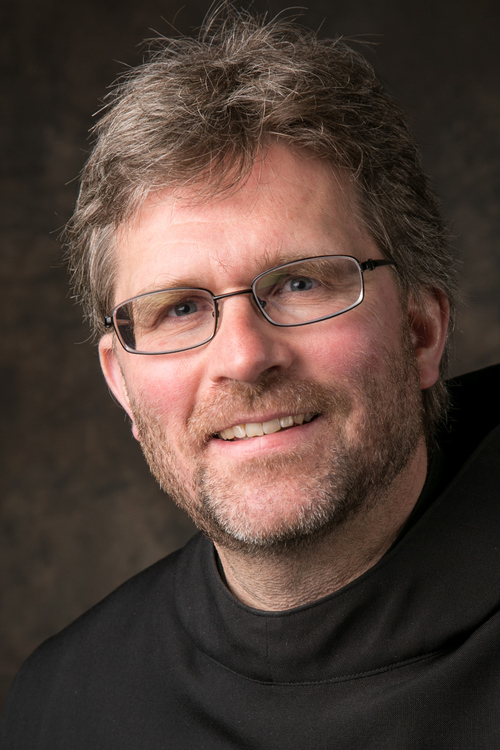Podcast: Play in new window | Download (Duration: 36:25 — 25.1MB) | Embed
Subscribe: Apple Podcasts | Spotify | Amazon Music | Android | Pandora | iHeartRadio | JioSaavn | Podchaser | Gaana | Podcast Index | Email | TuneIn | Deezer | Anghami | RSS | More

Winding Down With God – The Holy Rule of St. Benedict with Fr. Mauritius Wilde OSB
Fr. Mauritius Wilde discusses the wisdom of St. Benedict’s Rule, particularly its guidance on preparing for restful sleep. Sobriety and intentionality are key themes as Fr. Wilde highlights the importance of evening practices like silence, appropriate reading, and prayer to cultivate peace of mind and openness to God. Drawing on chapter 42 of the Rule, he explains St. Benedict’s instructions for monks to avoid disruptive influences at night—whether through food, distractions, or unsettling reading material—and instead embrace spiritual nourishment and silence as a pathway to restful sleep and divine connection.
Fr. Wilde also explores the deeper spiritual significance of these practices. Nighttime, seen as a moment of vulnerability and surrender, invites trust in God’s protection and mercy. Practices like the nightly prayer of Compline encourage reflection, forgiveness, and a sense of communal support as part of the universal Church’s rhythm of prayer.
Discerning Hearts Reflection Questions
- The Importance of Evening Preparation: Reflect on how your evening habits influence your spiritual and physical state upon waking.
- Guarding Your Inner Peace: Consider what practices or distractions might be disrupting your ability to enter a restful state of mind at night.
- Surrendering Control to God: Contemplate how trusting God with your vulnerabilities during sleep strengthens your relationship with Him.
- The Role of Silence in Spiritual Growth: Examine how cultivating silence, especially before bed, helps you remain open to God’s presence.
- Spiritual Nourishment Before Rest: Reflect on the content you consume at night and how it aligns with building a peaceful and holy state of being.
- Living in God’s Presence Through Prayer: Ponder how integrating a nightly prayer routine, like Compline, deepens your reliance on God’s love and mercy.
- Balancing Activity and Rest: Evaluate whether your current approach to winding down balances your need for spiritual engagement and physical relaxation.
- Community and Universal Prayer: Meditate on how participating in the Church’s collective prayers unites you with others in faith and brings comfort.
From the Holy Rule of St. Benedict
CHAPTER XLII: That No One Speak after Complin
Monks should always be given to silence, especially, however, during the hours of the night. Therefore, on every day, whether of fast or of a mid-day meal, as soon as they have risen from their evening meal, let all sit together in one place, and let one read the Conferences or the Lives of the Fathers, or something else that will edify the hearers; not, however, the Heptateuch or the Books of the Kings, because it would not be wholesome for weak minds to hear this part of the Scripture at that hour; they should, however, be read at other times. But if it was a fast-day, then, when Vespers have been said, and after a short interval, let them next come together for the reading of the Conferences, as we have said; and when the four or five pages have been read, or as much as the hour will permit, and all have assembled in one place during the time of the reading, let him also come who was perchance engaged in work enjoined on him. All, therefore, having assembled in one place, let them say Complin, and after going out from Complin, let there be no more permission from that time on for anyone to say anything.
If, however, anyone is found to break this rule, let him undergo heavy punishment, unless the needs of guests should arise, or the Abbot should perhaps give a command to anyone. But let even this be done with the utmost gravity and moderation.
The Hymn from Compline mentioned by Fr. Mauritius in the podcast:
To Thee Before the Close of Day (English)
To Thee before the close of day,
Creator of the world, we pray
That, with Thy wonted favor, Thou
Wouldst be our guard and keeper now.From all ill dreams defend our sight,
From fears and terrors of the night;
Withhold from us our ghostly foe,
That spot of sin we may not know.O Father, that we ask be done,
Through Jesus Christ, Thine only Son,
Who, with the Holy Ghost and Thee,
Doth live and reign eternally.Amen.
Te Lucis Ante Termium (Latin text)
Te lucis ante términum,
rerum Creátor, póscimus,
ut pro tua cleméntia
sis præsul et custódia.Procul recédant sómnia
et nóctium phantásmata;
hostémque nostrum cómprime,
ne polluántur córpora.Præsta, Pater piíssime,
Patríque compar Unice,
cum Spíritu Paráclito
regnans per omne sǽculum.Amen
Father Mauritius Wilde, OSB, Ph.D., did his philosophical, theological and doctoral studies in Europe. He is the author of several books and directs retreats regularly. He serves as Prior at Sant’Anselmo in Rome. For more information about the ministry of the Missionary Benedictines of Christ the King Priory in Schuyler, NE

